This review has been published as part of our Headline Bikes test, where we put eight trend-setting mountain bikes for 2023 through their paces. Read more about the bikes setting the trend for the year ahead.
Decathlon brand Rockrider’s MTB Race 900 Team Edition cross-country hardtail mountain bike weighs in at an impressively light 9.4kg (size small, without pedals) and is priced at £3,799.99.
Thanks to its low weight and stiff construction, it has excellent power conversion from pedalling to forward motion, aided by the RockShox SID Ultimate fork’s lockout function.
To boot, it’s fitted with SRAM’s high-end, high-performing XX1 Eagle AXS drivetrain and Reynolds carbon fibre wheels.
In a smart move by Decathlon, a brand usually associated with low-cost, entry-level bikes, at the start of 2022 it announced its debut entry to the UCI Mountain Bike World Cup. It fielded an all-new team line-up and bike, competing under the banner of the newly formed UCI Rockrider outfit.
The MTB Race 900 Team Edition is the same bike the Rockrider team is riding, and is undeniably aimed at riders who are serious about going fast.
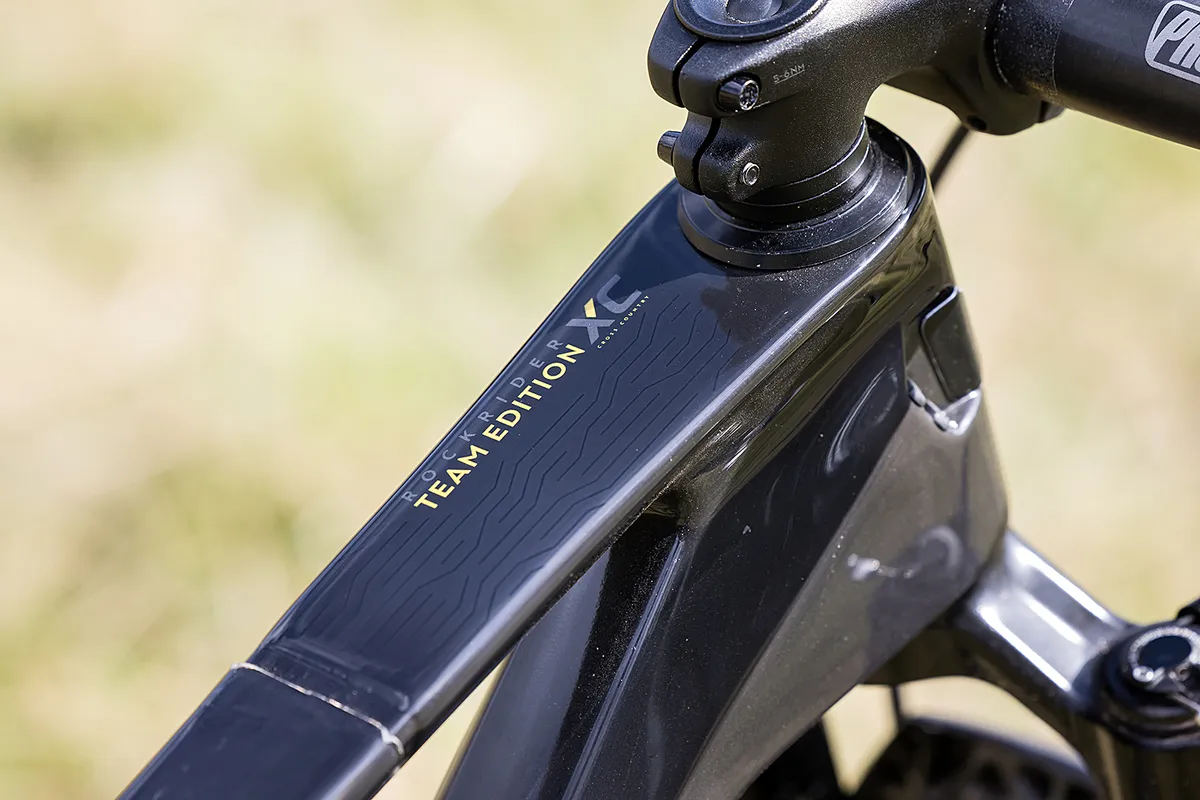
In an attempt to produce its 'ultimate weapon', Decathlon has kept both frame and component weight to a minimum by adorning it with an impressive catalogue of top-of-the-range carbon fibre parts from big-name brands.
Adding to its cross-country bike credentials is a low stack height enhanced by the 60mm, -20-degree stem (size small). This stretches the rider into a low, aero position, which is great for climbing and mellow gradient descents.
I did find it to be more of a challenge to ride quickly on technical downhill sections than other race hardtails I’ve tested recently, a trade-off geometry of this type always creates.
Decathlon Rockrider MTB Race 900 Team Edition frame and suspension
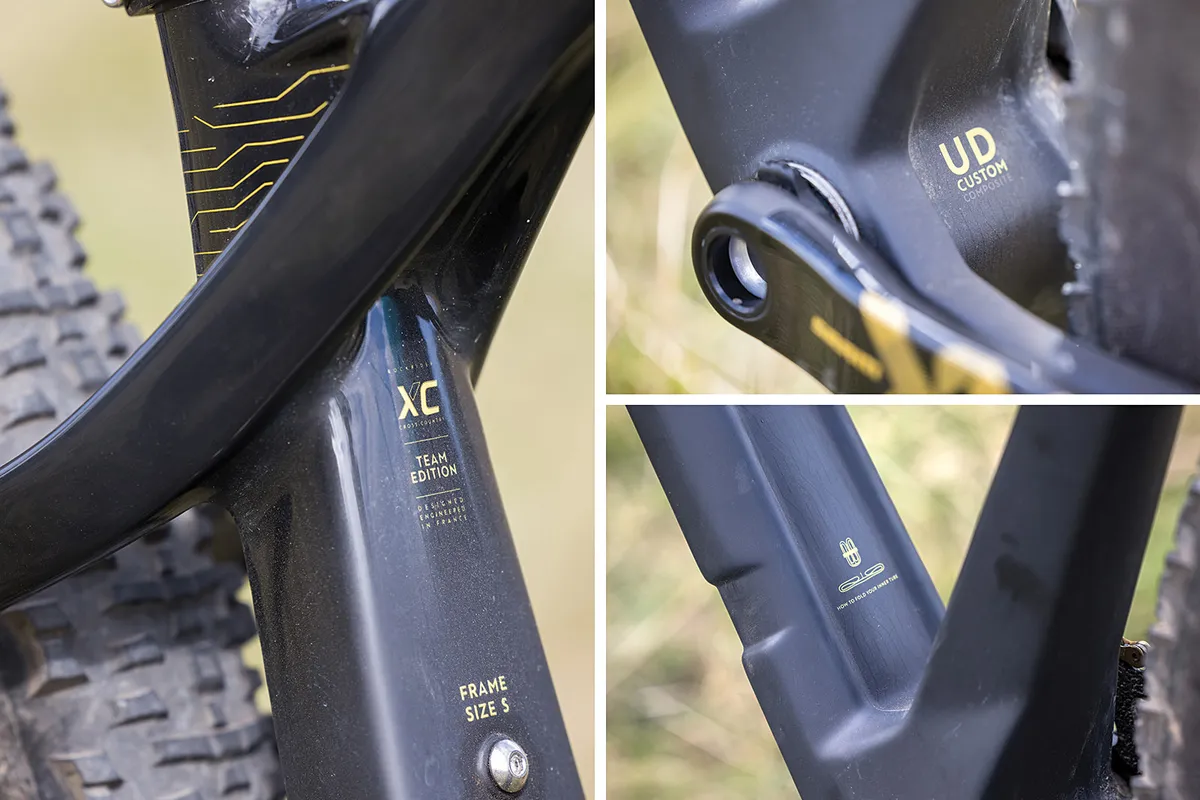
The Rockrider’s full-carbon frame is made in France and constructed from 'high modulus fibres', which refers to the stiffness of the material.
The greater the modulus, the higher the stress necessary to cause deformation or flex, which can contribute to how smooth it feels on the trails. In simple terms, this means it's a stiff frame.
Thanks to wireless gear shifting, there's only one internally routed cable for the rear brake, with a spare port for a dropper cable.
The Rockrider has a press-fit PF92 bottom bracket, while it runs Boost 148mm axle spacing, along with its 1x-specific drivetrain.
It’s fitted with SRAM’s Universal Derailleur Hanger (UDH), which should make finding a replacement hanger easier, and ensures a standardised position of the derailleur.
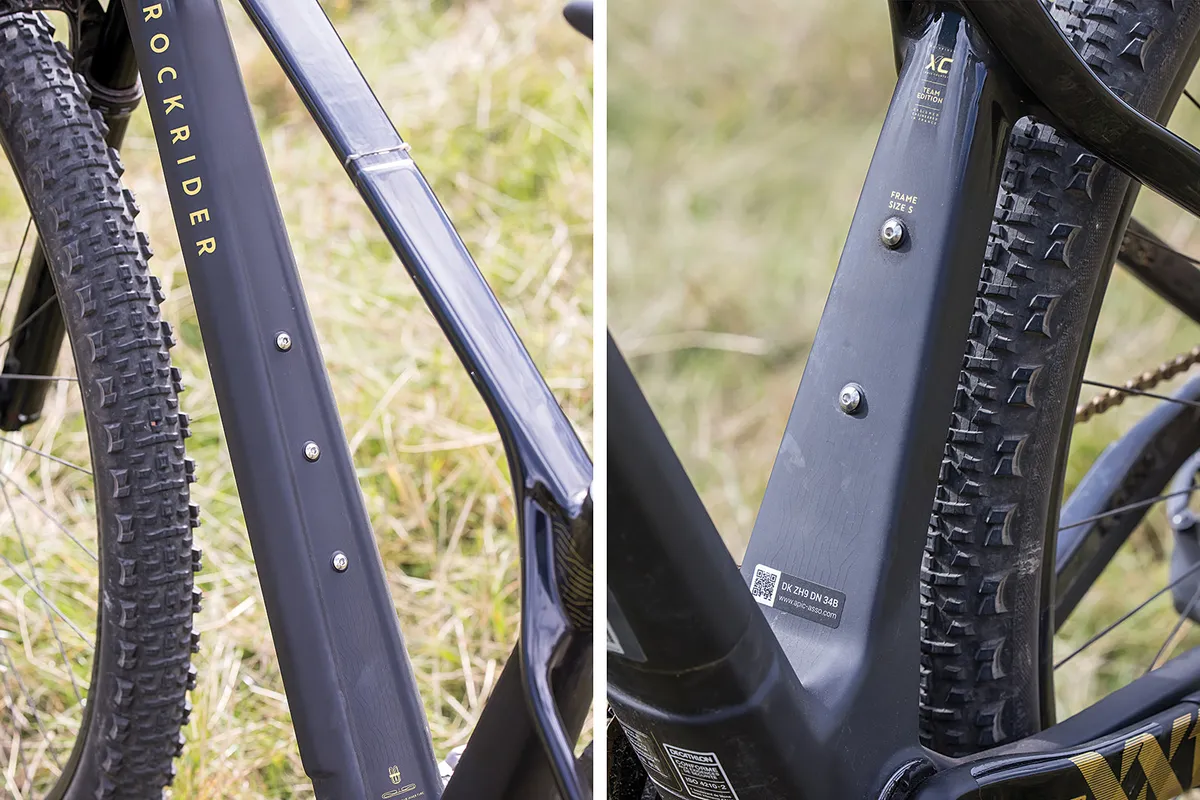
A thick 3M protector strip runs along a short section the length of the top tube that fits into a dedicated indent section, providing some frame protection.
There’s also an embossed section on the down tube suitable for strapping an emergency inner tube to.
There’s space for two bottle cages, where the bottle bosses are located on the seat and down tubes.
Decathlon Rockrider MTB Race 900 Team Edition geometry
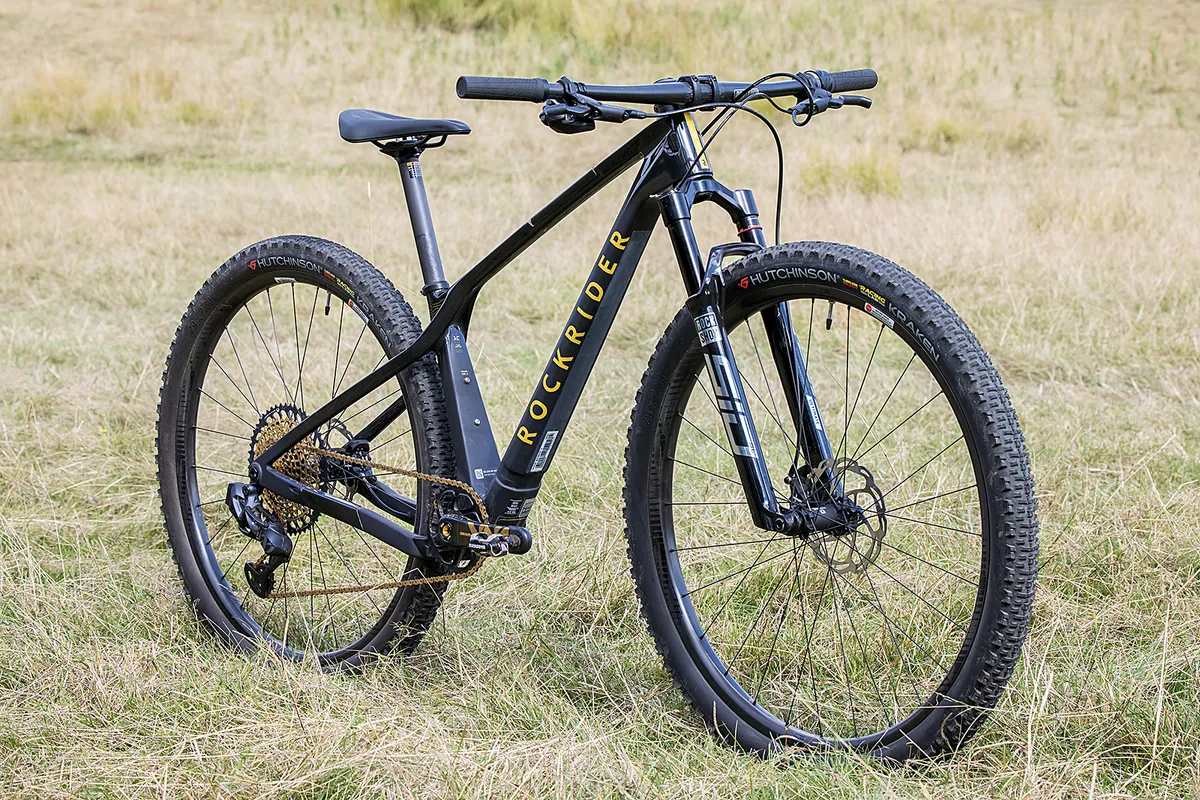
Designed to put the rider in a low, racing position, the size small test bike I tested has a 74-degree seat tube angle, a fairly steep 68-degree head angle and a reach of 412mm.
It has 435mm chainstays, along with a 1,121mm wheelbase.
The cockpit’s 590mm top tube is increased by the 60mm-long, -20-degree stem.
The 31.6mm seat tube enables dropper post upgrades thanks to a spare internal routing cable port.
| | S | M | L | XL |
|---|---|---|---|---|
| Seat angle (degrees) | 74 | 74 | 74 | 74 |
| Head angle (degrees) | 68 | 68 | 68 | 68 |
| Chainstay (mm) | 435 | 435 | 435 | 435 |
| Seat tube (mm) | 370 | 400 | 450 | 520 |
| Top tube (mm) | 590 | 610 | 630 | 650 |
| Bottom bracket drop (mm) | 60 | 60 | 60 | 60 |
| Wheelbase (mm) | 1,121 | 1,142 | 1,163 | 1,185 |
| Stack (mm) | 601 | 611 | 624 | 643 |
| Reach (mm) | 412 | 429 | 445 | 459 |
Decathlon Rockrider MTB Race 900 Team Edition specifications
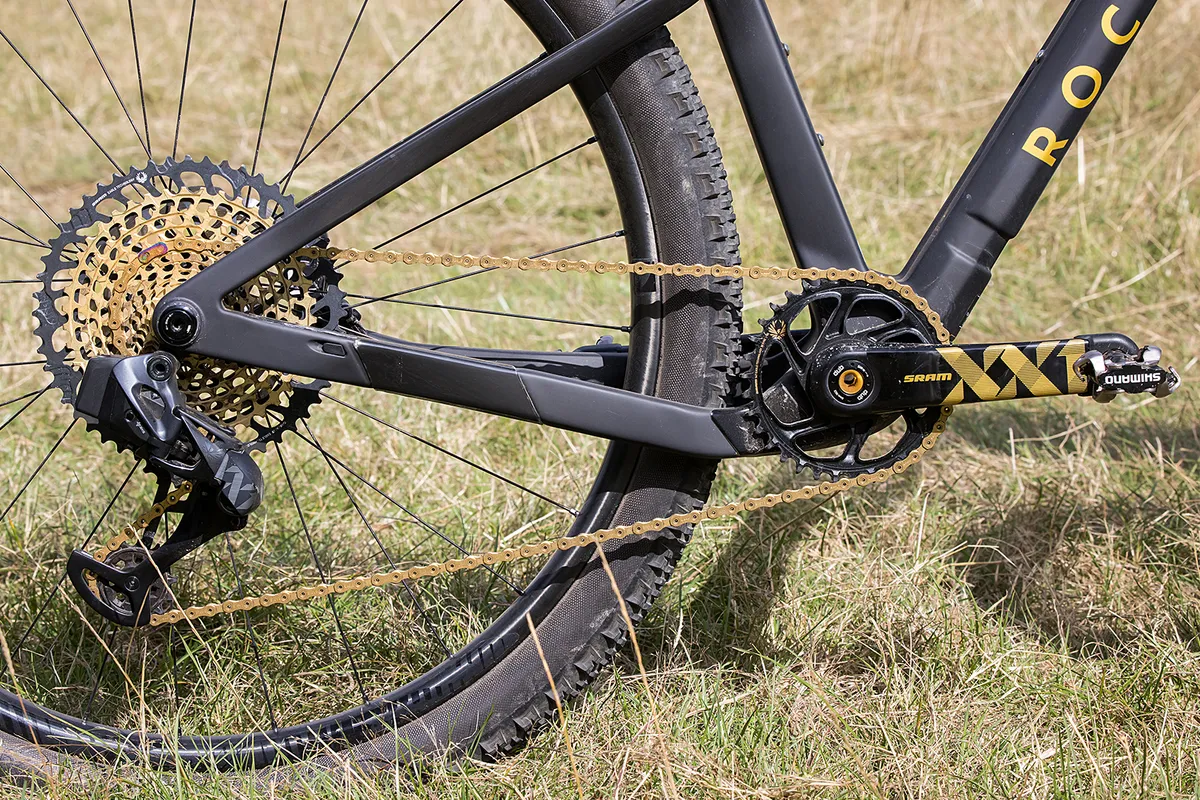
Fitted with SRAM’s XX1 Eagle AXS wireless, electronic shifting groupset and carbon fibre Reynolds TR309/289 wheels, the Rockrider’s components have a premium feel.
A RockShox SID SL Ultimate 100mm-travel fork sits at the front. This has a ComboLock II two-position remote lockout that’s operated using a left-hand grip shift lever.
Braking is taken care of by Hayes Dominions that are fitted with carbon fibre lever blades, running 160mm disc rotors.
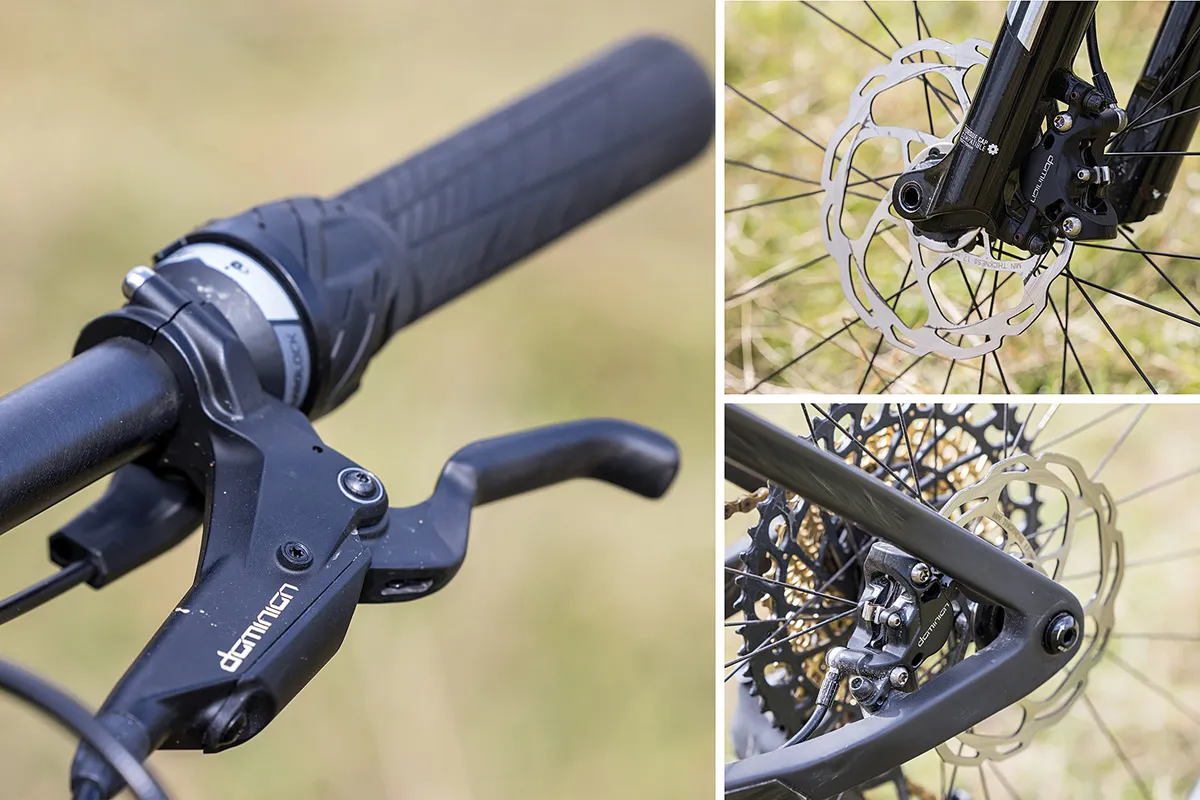
Staying true to the aim of keeping weight down, it’s fitted with a 31.6mm carbon seatpost and Fizik’s Vento Argo carbon saddle.
The 760mm-wide ProTaper Hyperlite carbon bars are claimed to weigh 125g, and are paired with an own-brand aluminium 60mm (on size small) stem.
The Hutchinson Kraken Racing Lab tyres are handmade in France and fitted both front and rear. The rear one has the more resilient Hardskin carcass to reduce the chances of punctures.
Decathlon Rockrider MTB Race 900 Team Edition ride impressions
To test out just how competitive this speed-machine really is, I took it out on an extensive range of climbs and trails.
I rode the bike in Scotland’s Tweed Valley, on the trails that will host the 2023 cross-country mountain bike world championships, arguably the bike’s bread and butter.
Decathlon Rockrider MTB Race 900 Team Edition climbing performance
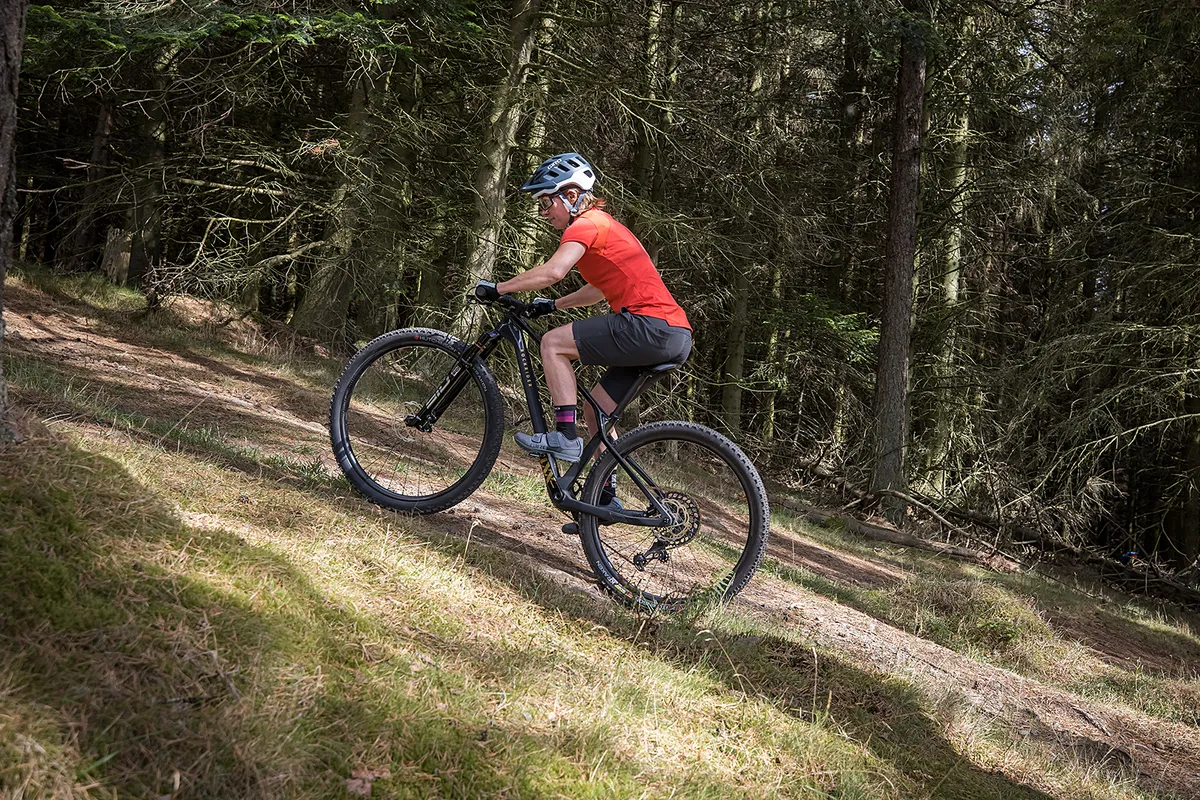
The Rockrider converts leg power into speed with absolute ferocity, thanks to the lightweight, stiff carbon frame.
It hurtles along roads, gravel tracks and smooth, singletrack trail centre surfaces with total confidence. Tight switchback climbs felt composed and I was able to push hard throughout the turns thanks to the low rider position, which put plenty of my weight over the front wheel.
The SID Ultimate ComboLock remote lockout truly firmed the fork up, and when combined with standing up sprinting, made me appreciate just how good the acceleration and rolling speed of the Rockrider is, which encouraged me to pedal hard in order to keep up a fast pace.
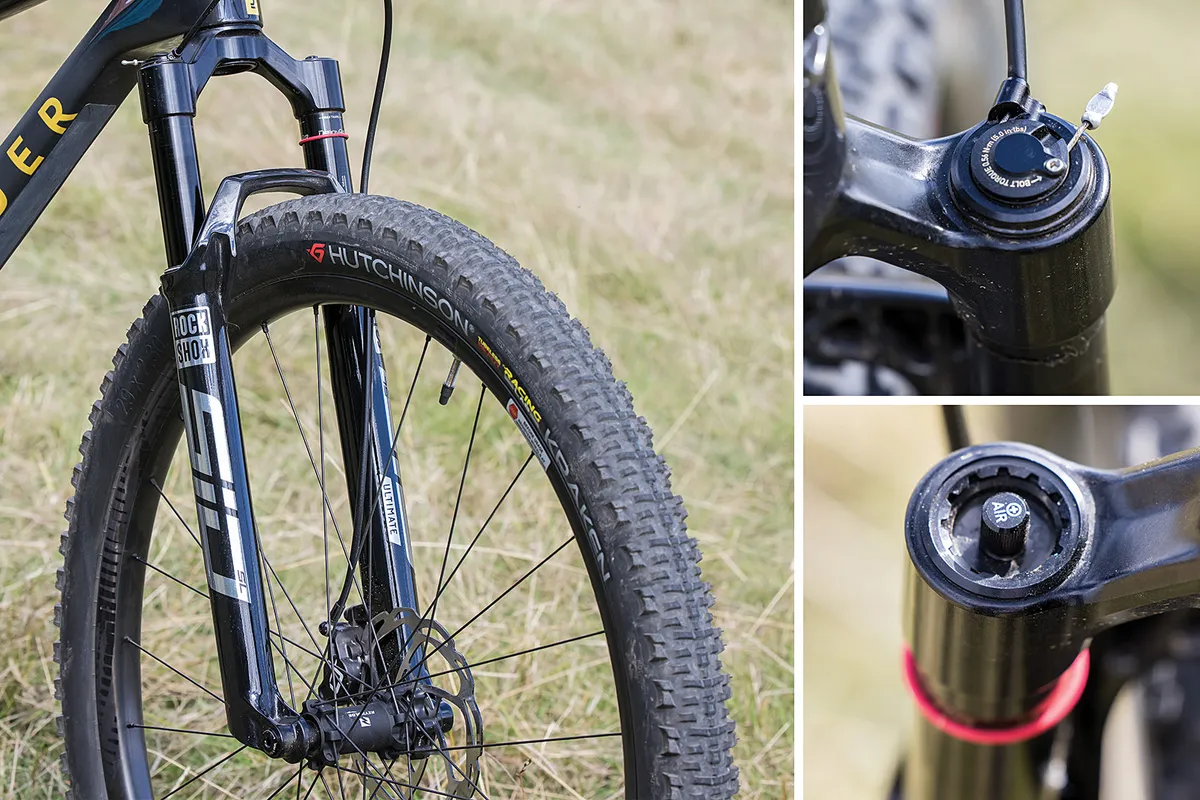
However, on short, timed sprint sections consisting of a predominantly flat, rumbly trail centre with short, punchy climbs and shallow downs, I was expecting the Rockrider to be faster than a Cannondale Scalpel I tested recently.
Using Strava to time the segment, I wasn’t able to beat or even equal the times of the Cannondale, despite putting in the same effort.
Although the accuracy of Strava segment times is not perfect, they are a good indication of speed. I suspect the slower times were a result of the frame’s stiffness and how this impacts traction when pedalling hard over rocky ground.
Although this is only a subjective account, it does identify that an overly stiff frame can reduce speed rather than enhance it.
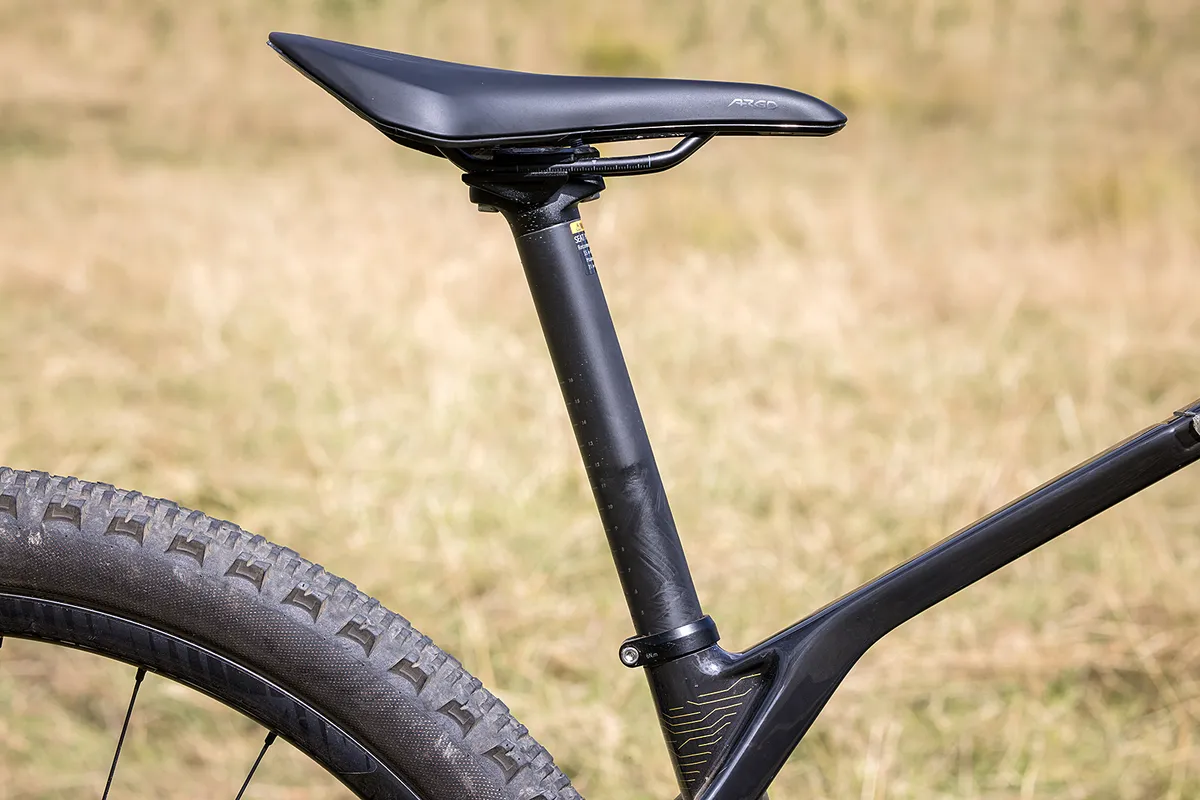
After only a handful of rides, the top tube protector began to look scruffy, its edges lifting as they came unstuck from the frame’s tubes.
Although this is only a minor detail, it happened quickly, which was disappointing. Owners will need to take care to keep the Rockrider looking new if that is their priority.
The lack of internal cable-routing guides certainly helped keep the frame’s weight low. Yet, out on the trails, the noise created by the rear brake hose moving inside of and banging against the walls of the down tube was overbearing, and even embarrassing when passing other riders.
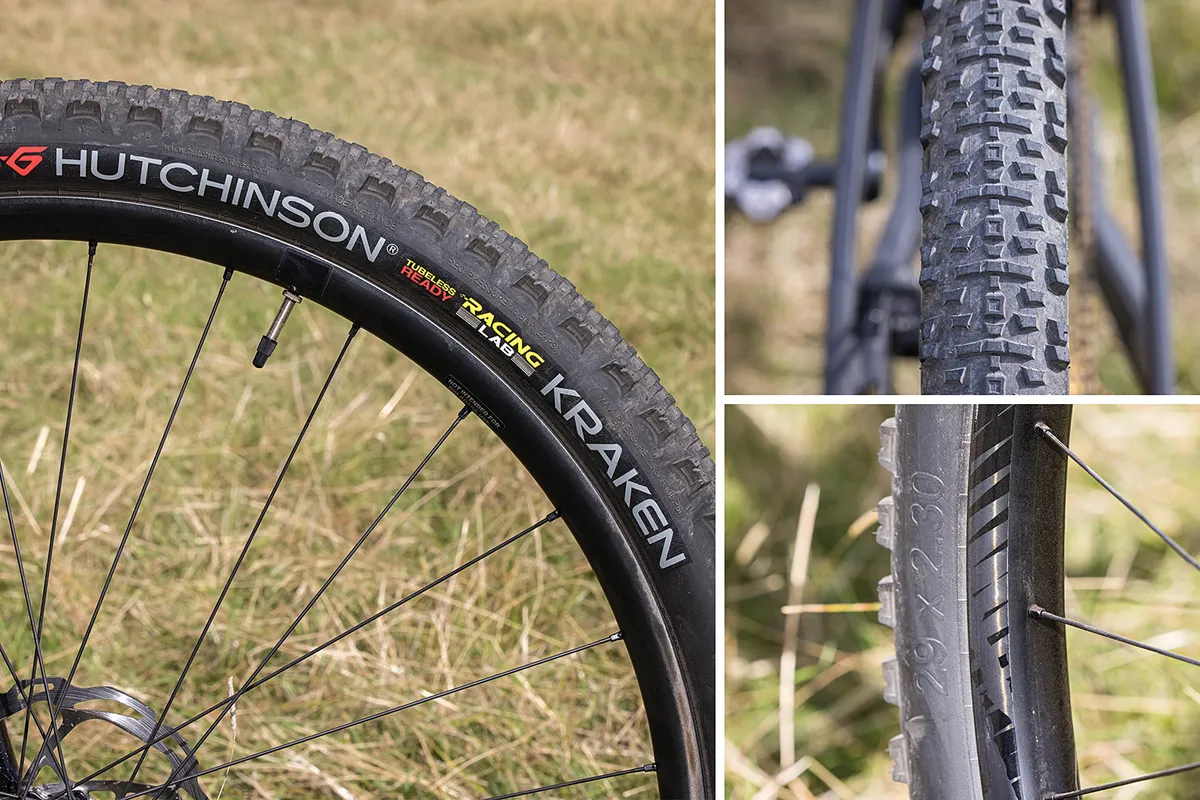
The smallest loose stones and shallow potholes on fire roads were enough to generate significant rattle.
Even considering the modest cost of the Rockrider, the noise the loose cable generated turned the lack of internal tube routing into a big oversight, especially when clamps at the cable ports to keep the cable tight could have helped reduce noise significantly.
Testimony to the performance of SRAM’s XX1 AXS Eagle drivetrain, shifting has been faultless for the entire test period.
Choosing to spec such a high-value, high-performing drivetrain to an affordable race bike is a great move and I think riders will truly appreciate the performance.
Decathlon Rockrider MTB Race 900 Team Edition descending performance
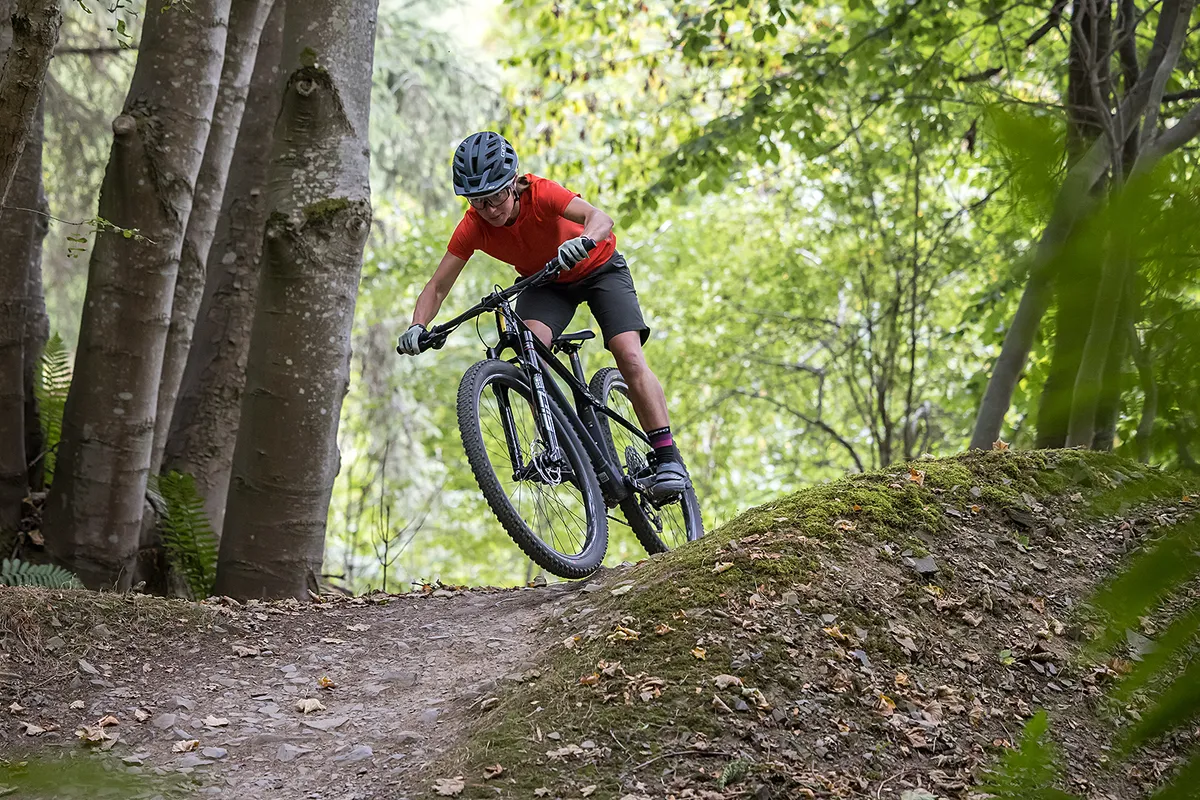
Thanks to the fast-rolling tyres, the speed maintained by sprinting was easy to carry down trails, and continued acceleration or speed top-ups required less effort.
On smooth, flowy singletrack and blue trail centre surfaces, the bike was quick and punchy.
Thanks to the geometry, it held my upper body in that aggressive, weight-forward, get-low attack position for descending.
This made green trail centre routes amazing fun to ride at high speed, and I was able to bounce off small kickers and press into swoopy bermed turns and rollers to generate even more speed.
The downside of the aggressive body position meant lots of my weight was concentrated through my hands onto the bars, rather than balanced out between my hands and feet.
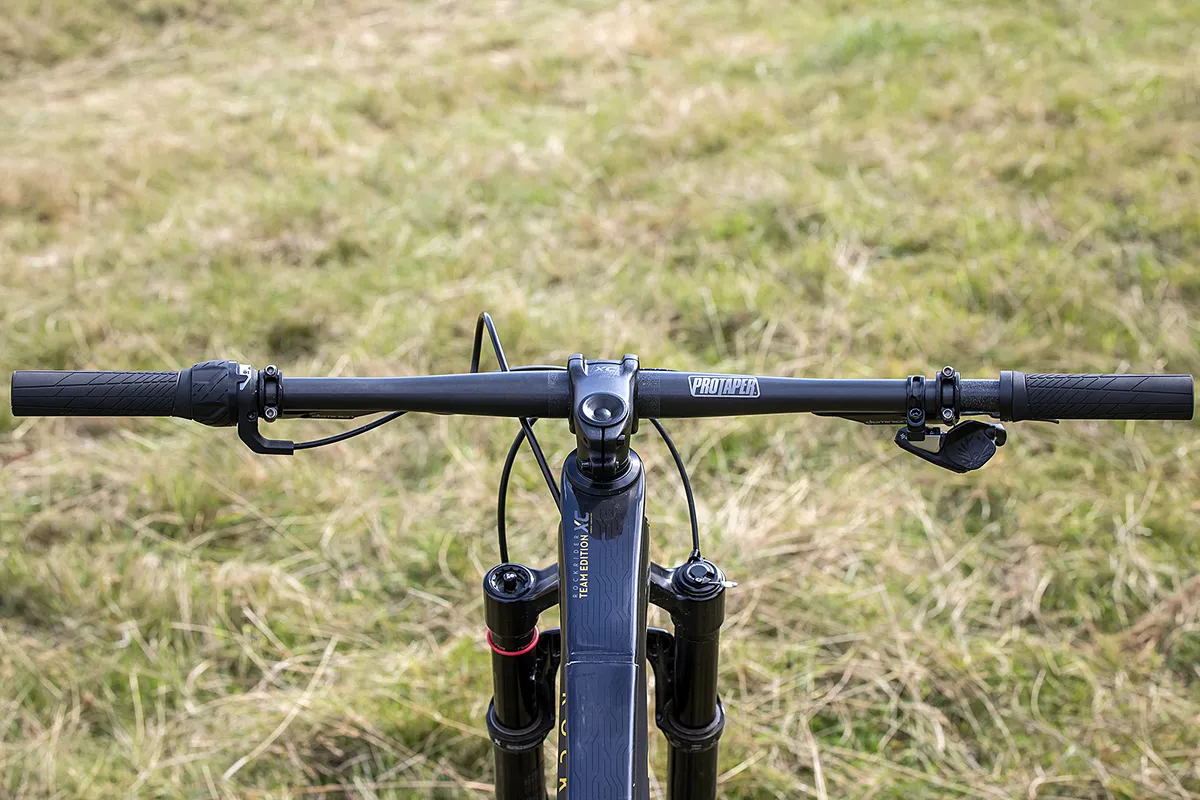
While this increased pressure through my hands helped me pump harder and made changing direction engaging, it also increased my rate of hand fatigue.
Progressing to fast and rumbly red trail centre descents or steeper and more technical black graded trails carpeted with big roots and rocks, the bike transmitted a lot of jarring vibrations into my upper and lower body.
I could also feel vibrations from the brake pads moving in the calipers when trailing the brakes over stepped sections of trail.
The lack of forgiveness built into the frame on this type of trail made it very difficult to ride fast.
This meant I preferred to scrub off speed rather than rattle my way down uncomfortably. That said, the SID Ultimate is a smooth performer, absorbing small and big bumps well.
How does the Decathlon Rockrider MTB Race 900 Team Edition compare?
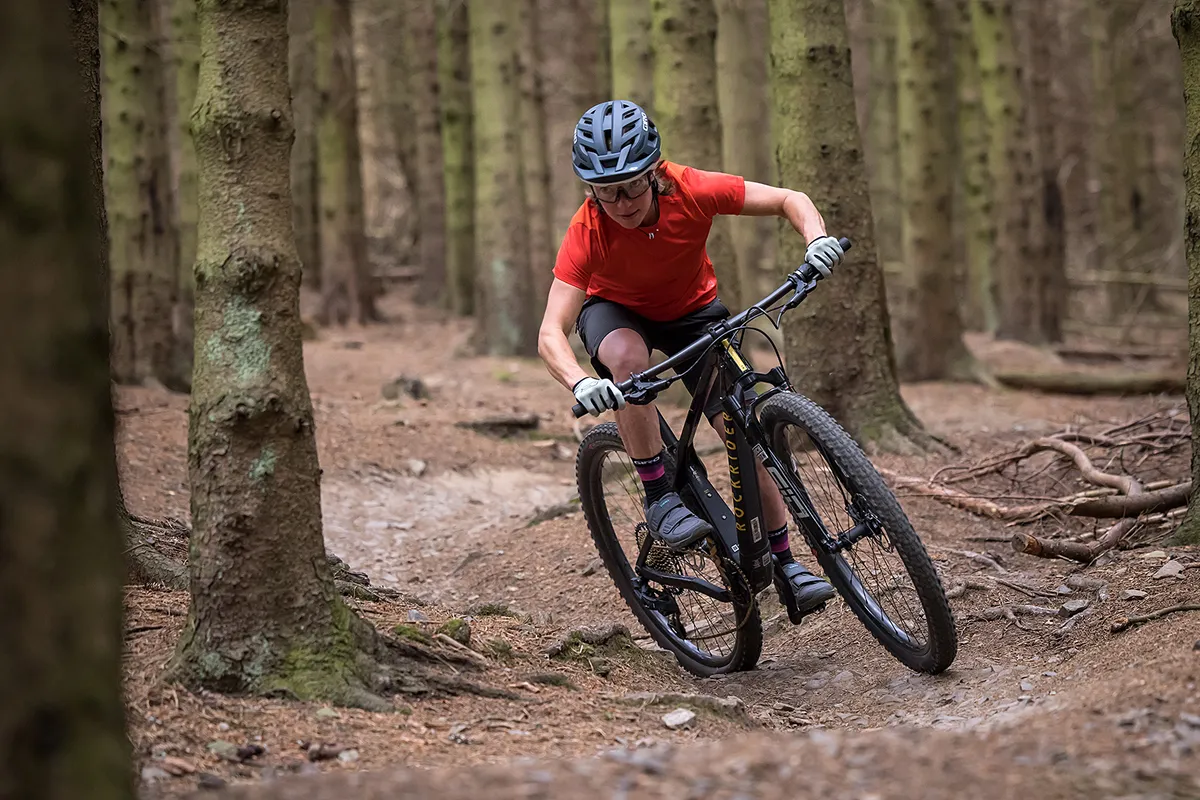
On paper, the Rockrider hardtail's numbers are in keeping with most other off-the-shelf production cross-country hardtails.
It's one of the lightest and stiffest bikes I've ridden to date, which means it accelerates and holds speed on smooth fire roads and singletracks, the types of surface found on cross-country race tracks.
It lacks the smoothness and damped ride quality of more forgiving frames, such as the Specialized Epic HT and Cannondale Scalpel.
Despite those two bikes being aimed at marathon-style racing, they were faster than the Rockrider on the types of trail you’d expect to find on XC short track world cup courses.
Although the stiffness made it lightning-quick in certain scenarios, it also made descending more challenging than it needed to be, and I was forced to back the pace off significantly compared to riding the same trails in the same conditions on the Cannondale and Specialized.
It’s a very noisy, rattly bike compared to others, where even the smallest of bumps create some form of resonance or noise from the frame, proving how important cable routing is.
Decathlon Rockrider MTB Race 900 Team Edition bottom line
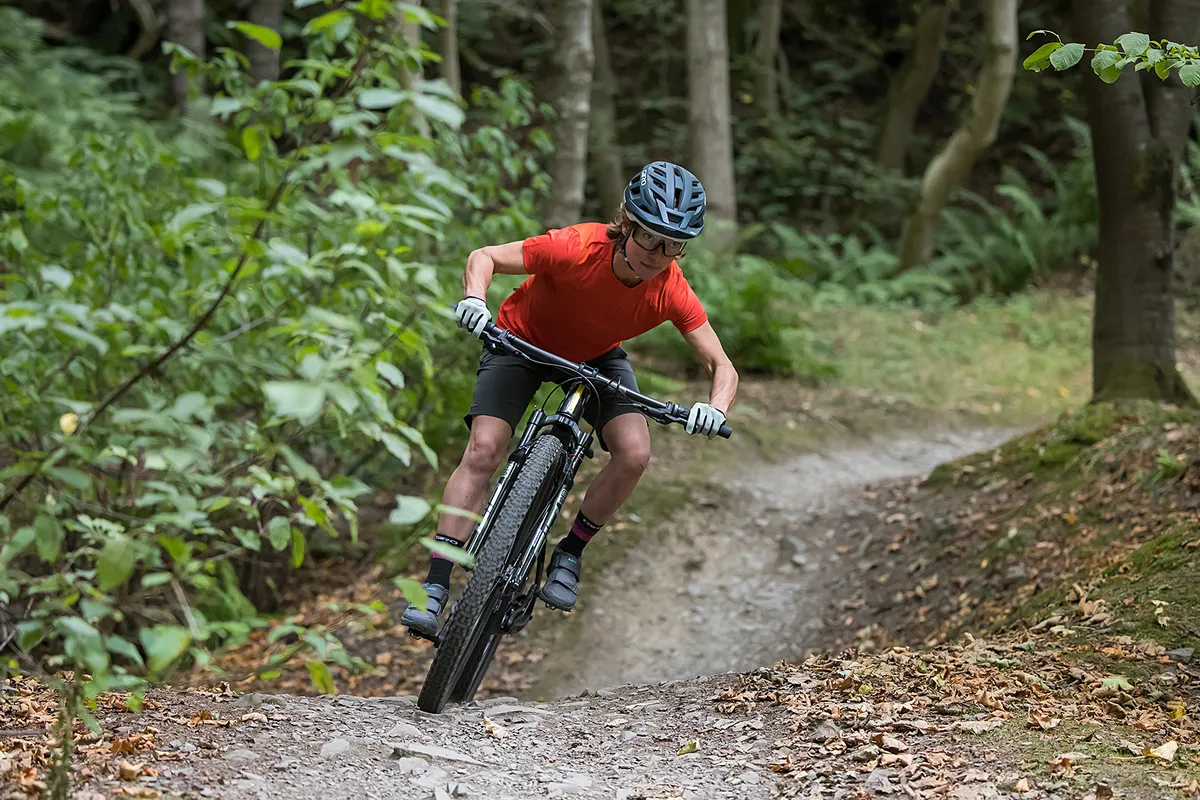
The Rockrider MTB Race 900 Team Edition is a race-ready bike with impressive, high-end spec, but it has significant limitations.
Those looking to take on the more technical side of cross-country racing will need to be prepared to take the hits over roots and rocks, and look into fixing the distracting cable rattle – or learn to live with it.
The aggressive riding position is conducive to speed, and riders whose primary discipline is road riding will find a reassuring familiarity in this hardtail when moving over to cross-country racing.
There’s no denying how quick the Rockrider is, but only on certain types of terrain, with the ride becoming harsh and uncomfortable when the going gets tough.
Product
| Brand | decathlon |
| Price | 3800.00 GBP |
| Weight | 9.4000, KILOGRAM (S) - |
Features
| Fork | RockShox SID SL Ultimate 100 mm |
| br_stem | Rockrider Aluminium |
| br_frame | Full carbon with high modulus fibres |
| Tyres | Hutchinson Kraken Racing Lab 29 x 2.30 (f) / Hutchinson Kraken Racing Lab Hardskin 29 x 2.30 (r) |
| br_brakes | Hayes Dominion T2 Carbon |
| br_cranks | SRAM XX1 |
| br_saddle | Fizik Argo Vento |
| br_wheels | Reynolds TR309/289 XC 29in |
| br_shifter | SRAM XX1 AXS |
| br_cassette | SRAM PG 1299 XX1 AXS 10-52 |
| br_seatpost | 31.6mm carbon |
| br_handlebar | Protaper Hyperlite |
| br_bottomBracket | PF 92 |
| br_availableSizes | S, M, L, XL |
| br_rearDerailleur | SRAM XX1 AXS Gold |
